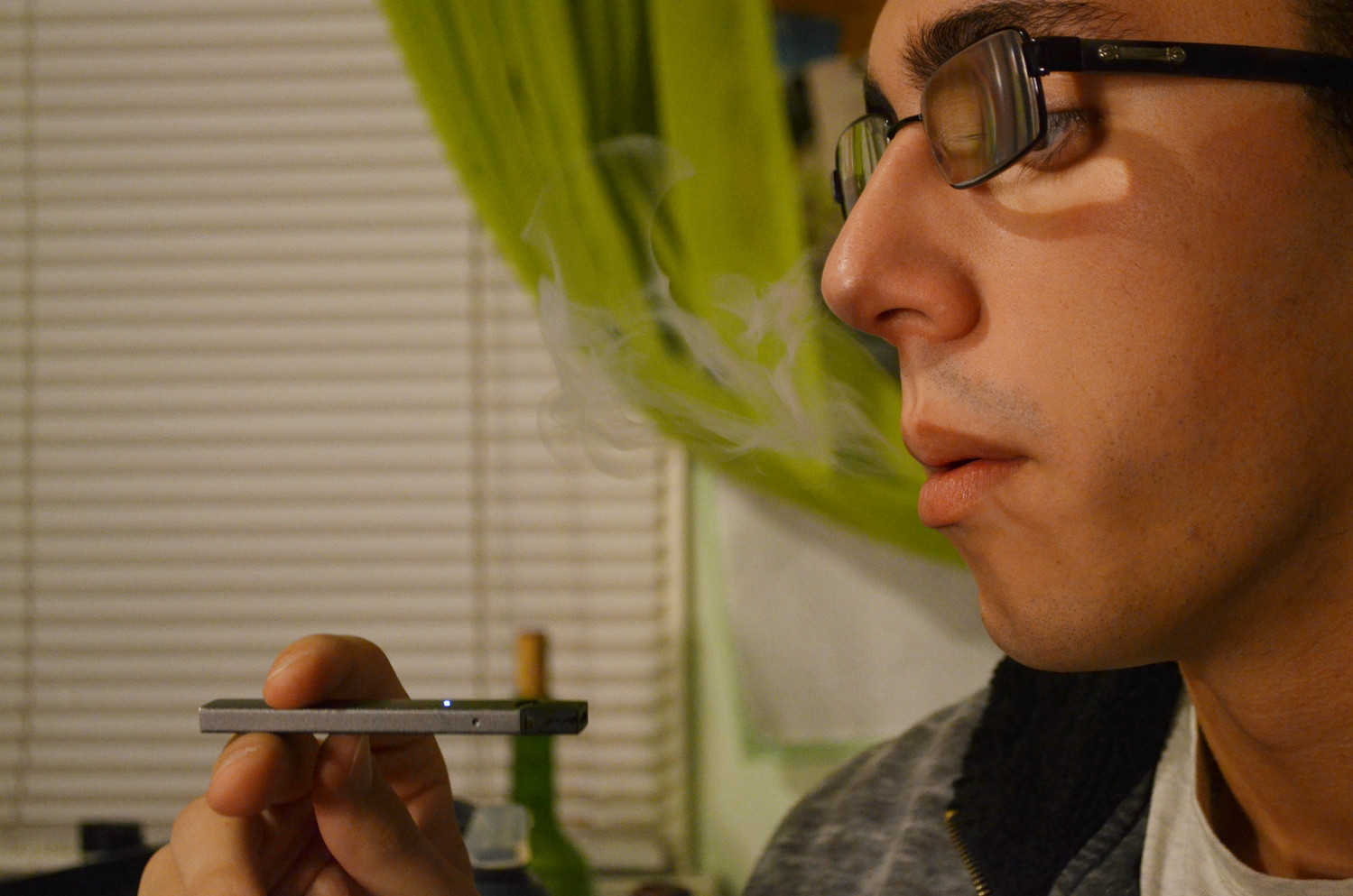City to hold public hearing over tobacco products
Local law would prohibit sales of liquid nicotine, e-cigarettes to those under 21
The City Council announced plans to hold a public hearing at its Nov. 21 meeting to discuss a proposed law that would prohibit the sale of tobacco products to anyone under age 21.
Council members said the law would potentially help delay or prevent tobacco use among young people, among whom the use of devices like electronic cigarettes and liquid nicotine has risen.
“It’s become a major issue all over the island,” said Judi Vining, executive director of Long Beach AWARE, a nonprofit organization dedicated to preventing alcohol and substance abuse among young people. “This law is designed to be a deterrent.”
According to the National Academy of Medicine, tobacco use is a leading cause of preventable death and disease in New York state, and council members said they hoped to protect the welfare and health of young Long Beach residents by adopting the local law.
The decision follows the Town of Hempstead’s move earlier this year to raise the legal age for buying tobacco products from 18 to 21. The age was already 21 in Suffolk County and New York City, and it is 19 in Nassau County.
“Right now ... kids can come to the city of Long Beach to buy their cigarettes,” said City Council Vice President Anthony Eramo. “As a parent of a high schooler and middle schooler, the statistics of underage smoking is mind boggling. [The local law] is just smart public health policy.”
“This legislation can potentially reduce use and experimentation, and we also believe that this would reduce the possibility for addiction,” added Councilwoman Anissa Moore. “The City of Long Beach is committed to improving the health and the safety of our teenagers as well as our young children and adolescents.”
If the law were passed, anyone who operates a business that sells tobacco and nicotine products would have to post signs stating that people under 21 were not allowed to purchase them. Storeowners who did not adhere to the law would be subject to fines of between $50 and $250 and/or seven days in jail for a first offense, subject to judicial discretion.
According to the National Academy of Medicine, the brains of young people are vulnerable to the effects of nicotine in ways that adults’ aren’t. Greater nicotine dependence is linked with people who start smoking or consuming tobacco at a young age, according to the institute.
Nearly 20 percent of high school seniors, they say, smoke cigarettes.
“[The local law] could, based on data, reduce the amount of high school smoking by 50 percent,” Moore said.
Underage users primarily rely on “social sources” to obtain tobacco products, including friends and family, and most of these sources are between 18 and 20 years old.
“I think that we need to create as many barriers as possible for young people to have access to tobacco and nicotine products,” Moore said. “Obviously, education and awareness is still critical to reduce the amount of experimentation as well as the daily use and the exposure. So it’s really two steps — it’s the legislation, but it’s also education and awareness of the impact.”

 50.0°,
Partly Cloudy
50.0°,
Partly Cloudy 





